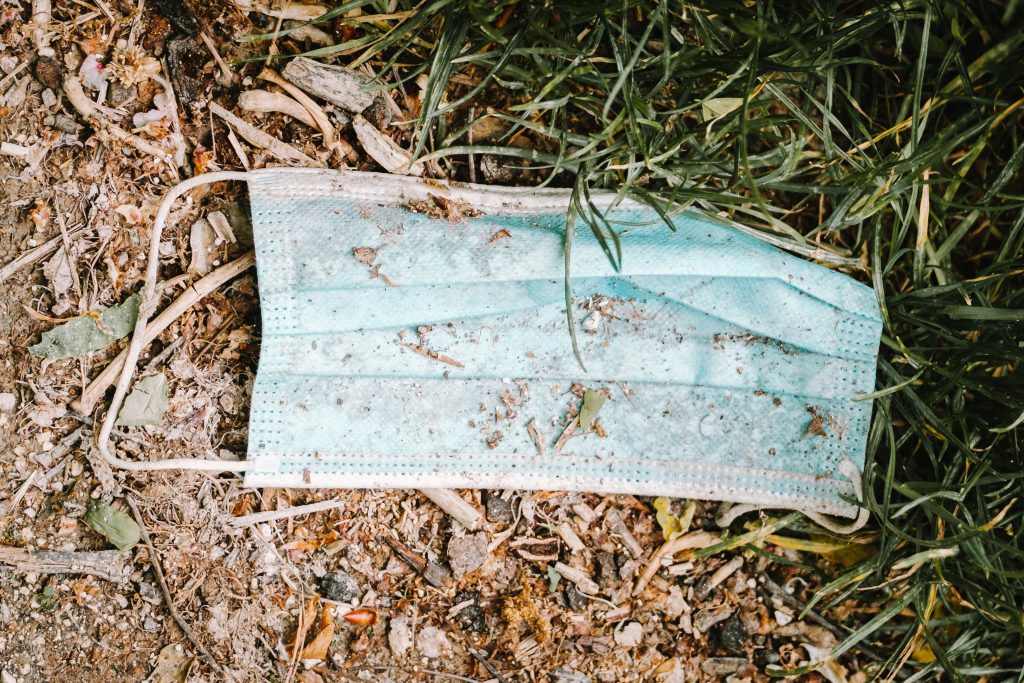
Ever since its declaration as a pandemic by the World Health Organization (WHO), COVID-19 has been considered to have a positive impact on the environment. Physical distancing and work from home policies are proven to reduce the pollution level and improve air quality in Indonesia. Quoted from BMKG, the daily average concentration of PM10 has decreased up to 20-30% compared to the previous year. In addition, during this pandemic, it fluctuates in the range of 20 – 70 ug/m3, which can be categorized as low to moderate level. On the other hand, this pandemic also caused some other problems. One thing that is often neglected is the medical waste generated by the COVID-19 crisis.
It is essential to know that health equipment such as personal protective equipment (PPE) is disposable. The increasing number of COVID-19 patients, followed by the high demand for PPE, causes a surge in medical waste. The average amount of medical waste per day before the pandemic from various hospitals in Indonesia reached 18,06 tons/day, while after the pandemic as of May, the total average reached 26,4 tons/day. A drastic increase of 46%.
Hospitals are not the only contributor to medical waste. The society also produces medical waste through the excessive usage of face masks during the pandemic. The introduction of face masks as one of the precautionary measures to slow down the transmission rate of COVID-19 from person to person has resulted in a global shortage of face masks for the most vulnerable group, which are the healthcare workers. A medical mask is a non-recyclable waste which means disposal needs to be done with the right methods at the waste management site. With the massive production of the medical mask waste, the potential for environmental damage in the future is higher if it isn’t handled properly.
CASE PERCENTAGE
- Each month, 89 million medical masks are needed to respond to COVID-19 all over the world
- Indonesia ranked as the world’s second-worst marine polluter with 1.29 million tons of plastic waste
- Indonesia now ranked 27th in global cases of COVID-19 and has the highest number of cases in Southeast Asia
Medical masks are strongly advised to be used only by two types of people:
- People with infectious respiratory disease
- Doctors and healthcare workers
The usage of medical masks for doctors and other healthcare workers prevent them from transmitting any virus to vulnerable patients with low immune systems
Wearing a non-medical face mask in the community is recommended for periods of time. When worn properly, a person wearing a non-medical mask or face covering can reduce the spread of his/her own infectious respiratory droplets. Wear your face mask correctly by washing your hands first, putting the mask over your nose and mouth, securing it under your chin, and fitting it comfortably against the sides of your face. Make sure you can breathe easily even after the face mask is properly used. Don’t forget to clean your mask after every wearing. This will reduce the risk of spreading the coronavirus or other germs.
The use of face masks should be considered as a complementary measure and not as a replacement for establishing preventive measures, for example, physical distancing, cough etiquette, meticulous hand hygiene and avoid touching the face, nose, eyes and mouth.
Pollution is an inevitable result of the society’s inability to manage waste. Let’s be a part of the solution, not part of the pollution. Together we can make the world a better place.
REFERENCES
- Bahraini, A., 2020. How To Deal With Your Disposable Medical Mask – The Responsible Way. [online] Waste4Change.
- European Centre for Disease Prevention and Control. (2020). Using face masks in the community. Stockholm
- Indonesian Agency for Meteorology, Climatology and Geophysics (BMKG)
- Indonesian Environmental Scientists Association (IESA)
- John Hopkins Medicine. 2020. Coronavirus: How To Care For Your Face Mask.
- National Center for Immunization and Respiratory Diseases (NCIRD): Considerations for Wearing Cloth Face Covering
- Rufinaldo, R., 2020. Indonesia: Experts Call For Effective COVID-19 Measures. [online] Aa.com.tr.
- World Health Organization. 2020. Shortage Of Personal Protective Equipment Endangering Health Workers Worldwide.
WOODIES by
M. Daffa Atilla
CIMSliography
TNCHRT SCORP-CIMSA 2019
